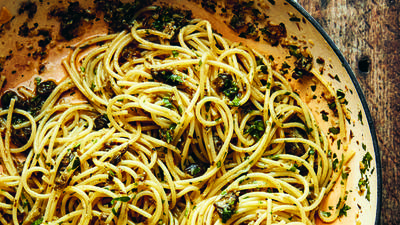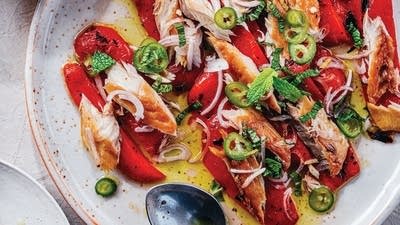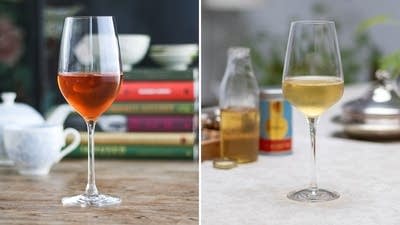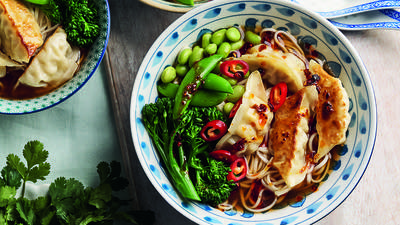
For beer lovers who are cutting back on their alcohol intake, there is a new wave of non-alcoholic options available that don’t fizz out on the flavor. Regardless your reasons for seeking out an NA beer, there are definitely other benefits beyond presence of alcohol which include fewer calories, fewer carbs and less sugar. For these reasons the NA beer market has seen an uptick in the past few years.
According to the Brewers Association and the IRI Group, while the non-alcoholic beers remains a fairly small part of the overall beer market in the U.S., between 2018 and 2019 NA beer grew 23 percent in dollar sales and 13 percent in volume sales. The rise in production and popularity recently led the Great American Beer Festival – the world’s largest beer competition – to bring back a non-alcoholic beer category for the first time in years due to increased demand.
The trend is being driven in part by smaller craft brewers who have begun making NA beer either solely or as part of their regular beer offerings, working to create a product that retains much of the malt, hops and other flavors you might find in a standard beer. As my Splendid Table team member Jenny Luebke said after sampling a few of these beers, “These brewers aren’t making consolation prizes; they are making something you actually want to drink.”
We wanted to know more about how these beers are made, what motivates brewers to make and drinkers to drink NA products, plus try a few for ourselves.
How are non-alcoholic beers made?
While they are not the only ways of a achieving an NA beer, there are two very popular methods by which NA beers are made. One way is called halted fermentation. Here, brewers take a beer recipe and ferment it at cooler than usual temperatures. This drastically slows down fermentation – and thus the creation of ethanol/alcohol – while allowing time for what small amount of alcohol there is to pull flavor compounds from the malts and hops. This class of NA beers may have higher amounts of residual sugar content that give the final beer a sweeter taste and rounder mouthfeel.
The second process by which a non-alcoholic beer can be created is called extractive distillation. Here, a beer is brewed and fermented as it would normally be to yield a standard strength beer of, say, about 4-6 percent alcohol by volume. It is then run through a specialized piece of equipment that removes the alcohol from the beer via one of several forms of distillation, which leaves the beer’s color, flavor, and aroma intact. This process removes the alcohol to a level that is 0.5 percent alcohol by volume or less.
However, you cannot simply remove the alcohol from a beer and expect it to taste exactly the same. “You have to pay careful attention so as to not unbalance the beer,” says Ben Jordan of ABV Technology, a company that manufactures equipment for extractive distillation. “If you pull out just the alcohol from a beer, now you’ve increased the concentration of everything else in the solution. You might have things that tastes more tart or more hoppy than they originally were.” This is complicated by the way our mouth and nose perceive these tastes. Ethanol in different concentrations changes the way your taste receptors work in your mouth and how your brain perceives the flavor. Alcohol is not just a byproduct of fermentation; it is very much a part of what we think of when we think of the flavor of beer.
As mentioned before, these are not the only ways to build a NA beer. Many craft brewers have customized proprietary processes to create non-alcoholic beers, some of which have literally zero percent alcohol, while others fall in that 0.5 percent or less category. Be sure to read the packaging before buying to determine what’s best for your consumption situation. Regardless of how it’s made, it’s exciting to see that a new generation of craft NA brewers are using groundbreaking innovation, endless creativity and their passion for flavorful options to create something unique for drinkers, even if they don’t drink.
Athletic Brewing Company (Stratford, CT)
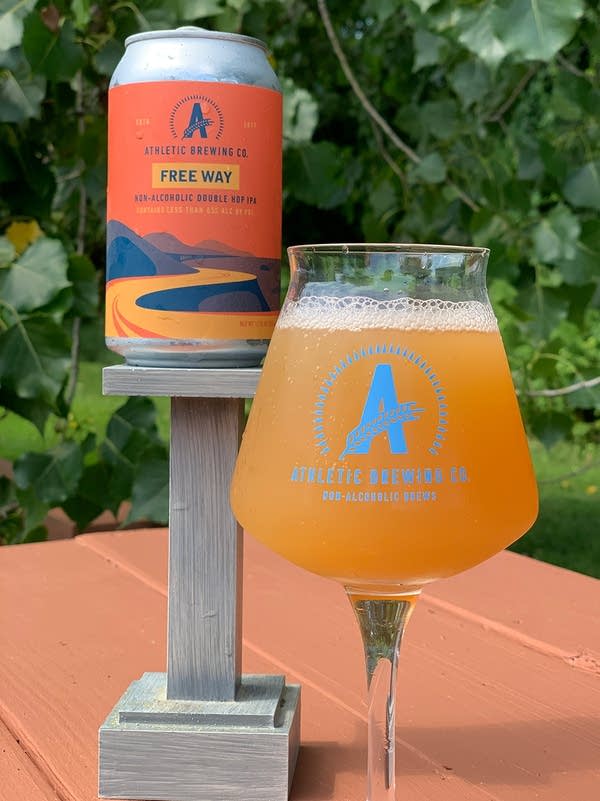
In our recent episode The Culture of Drinking, guest Julia Bainbridge could not have spoken more highly of Athletic Brewing Company, so we wanted to taste their beers for ourselves. We were extremely impressed at how in tune to current popular beer styles their NA offerings were.
“We came up with our own process where we change 10 or 12 variables along the process to make a fully fermented beer with all the esters and compounds that you’d expect,” says Athletic CEO and cofounder Bill Shufelt, “but it just happens to be below 0.5 percent alcohol by volume. Our process respects the high quality, organic ingredients we use and all the great things that yeast does in fermentation.”
Shufelt says many of Athletic’s consumers tend to be younger, active professionals who might be weekend warriors and enjoy healthful, mindful living. But, they also have a lot of middle-aged fans as well.
“Traditionally, non-alcoholic beer has been for all sorts of a ‘penalty box’ occasions like old age or medical reasons – you know, all of these reasons why you can’t partake in alcohol in social occasions. Instead, we’re trying to be positive and aspirational with it and to show that this is a good, healthy choice you can make and enjoy.”
Our pick: Free Way Double Hop IPA. The moment you crack the can, an aromatic wave of huge hops fills the air. The hoppy aroma is on par with many dry-hopped craft beers – luscious, fruity, juicy. The beer could be easily mistaken for an actual IPA, finishing with a light-medium toasty malt body to support the hops.
Bauhaus Brew Labs (Minneapolis, MN)

The majority of beers brewed at Bauhaus Brew Labs are regular-strength alcoholic beers. However, the motivation to create a NA product came out of necessity for owner Matt Schwandt. Two years ago, he was diagnosed with acute pancreatitis, which his doctor said was directly related to alcohol consumption. “That put me in the hospital for three days,” says Schwandt. “After that the doctor said I couldn’t drink alcohol anymore. I told him, that’s interesting because I own a craft brewery. I have my entire financial future tied up in this brewery and I can’t just leave it.”
With that inspiration Bauhaus set to work creating a NA beer based on the recipe for their regular-strength beer Homeguys Helles and created what became Nah, a non-alcoholic helles. “That’s been my standard response for the last two years,” laughs Schwandt. “People ask, do you want a beer? And I say, Nah.” Now the brewery is test brewing different styles to produce as NA because there is demand for it. “This is a great substitute for me personally, and the fact that it’s getting traction beyond our taproom is a great opportunity for us and a way for people to balance out their mindset about drinking culture. You can still be part of drinking culture without drinking all the time. There are flavorful options out there.”
Our pick: Nah (Non-Alcoholic Helles). This beer is a crusher! Crisp, clean, with the expected flavors and spicy hop aromas of a German-style lager. Nah is noticeably less sweet and lighter bodied than its full-strength counterpart. The brewery team is working on adjusting the recipe slightly to achieve a bit more body in the beer. It checks all the boxes for an enjoyable NA beer.
Surreal Brewing Company (Campbell, CA)
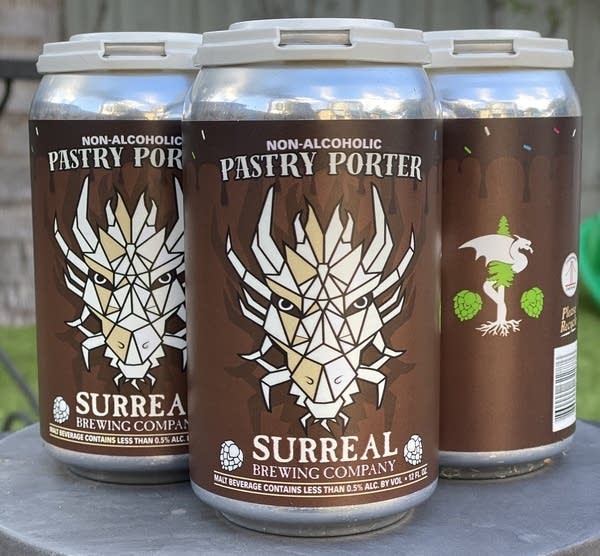
Surreal Brewing Company's NA beer portfolio includes a style for just about every beer lover, from a crisp and approachable Kolsch to the malty and assertive Chandelier Red IPA and ultra-tropical Juicy Mavs Hazy IPA. The company prides itself on making very low-calorie NA beers as well as two gluten-reduced options.
The idea to start Surreal came in a moment of celebration and frustration. After cofounder Donna Hockey successfully completed a year and a half of treatment for breast cancer, she and husband/cofounder Tammer Zein-El-Abedein wanted to celebrate with craft beer. Being non-drinkers, they were disappointed by what was available as far as NA beer. “We thought people wanted options and deserved better,” says the couple. “We put our heart and soul into every brew. Part of the reason is because we understand what it is like to feel excluded when it comes to alcohol-centered occasions. We are passionate about making these occasions inclusive.”
Our pick: Pastry Porter. A nod to the increasingly popular pastry stout craft beer style. Additions of lactose and monk fruit on top of the firm maltiness a porter to give this beer a rich dessert-like finish.
Hairless Dog Brewing Company (Minneapolis, MN)

As the producers of the only completely alcohol-free (0.0 percent alcohol by volume) NA beer made in the U.S., the founders of Hairless Dog Brewing Company tell us that their process and flavors are different from other beers. “We took a culinary approach where we looked at a finished beer and asked, what is it that makes that tastes good, and worked backwards from there,” says Paul Priner, the company’s chief of operations. “We leave almost everything in instead of stripping things out. We want people to love what it is, not what it isn’t.”
Hairless Dog currently offers a coffee stout, an IPA and a black ale with new beers and seasonal releases in planning. It’s flavors like these that Pirner says helps NA producers educate the drinking and non-drinking public and help overcome the stigma of non-alcoholic beers. “There seems to be a bias against non-alcoholic beer that seems contradictory. For the folks that ask, why not just have a Diet Coke then? To them we want to demonstrate that just because you quit drinking a couple nights a week, or maybe completely, that you don’t have to miss out on this experience. There’s a lot of room to innovate and grow here.”
Our pick: NA Black Ale. A blend of dark, roasted malt sweetness with earthy hops gives this beer a good balance for people looking for something beyond light lagers and mega hops. Good carbonation delivers notes of chocolate and dark toast and finishes just bitter enough to encourage your next sip.
Before you go...
Each week, The Splendid Table brings you stories that expand your world view, inspire you to try something new, and show how food connects us all. We rely on your generous support. For as little as $5 a month, you can have a lasting impact on The Splendid Table. And, when you donate, you’ll join a community of like-minded individuals who love good food, good conversation, and kitchen companionship. Show your love for The Splendid Table with a gift today.
Thank you for your support.
Donate today for as little as $5.00 a month. Your gift only takes a few minutes and has a lasting impact on The Splendid Table and you'll be welcomed into The Splendid Table Co-op.

